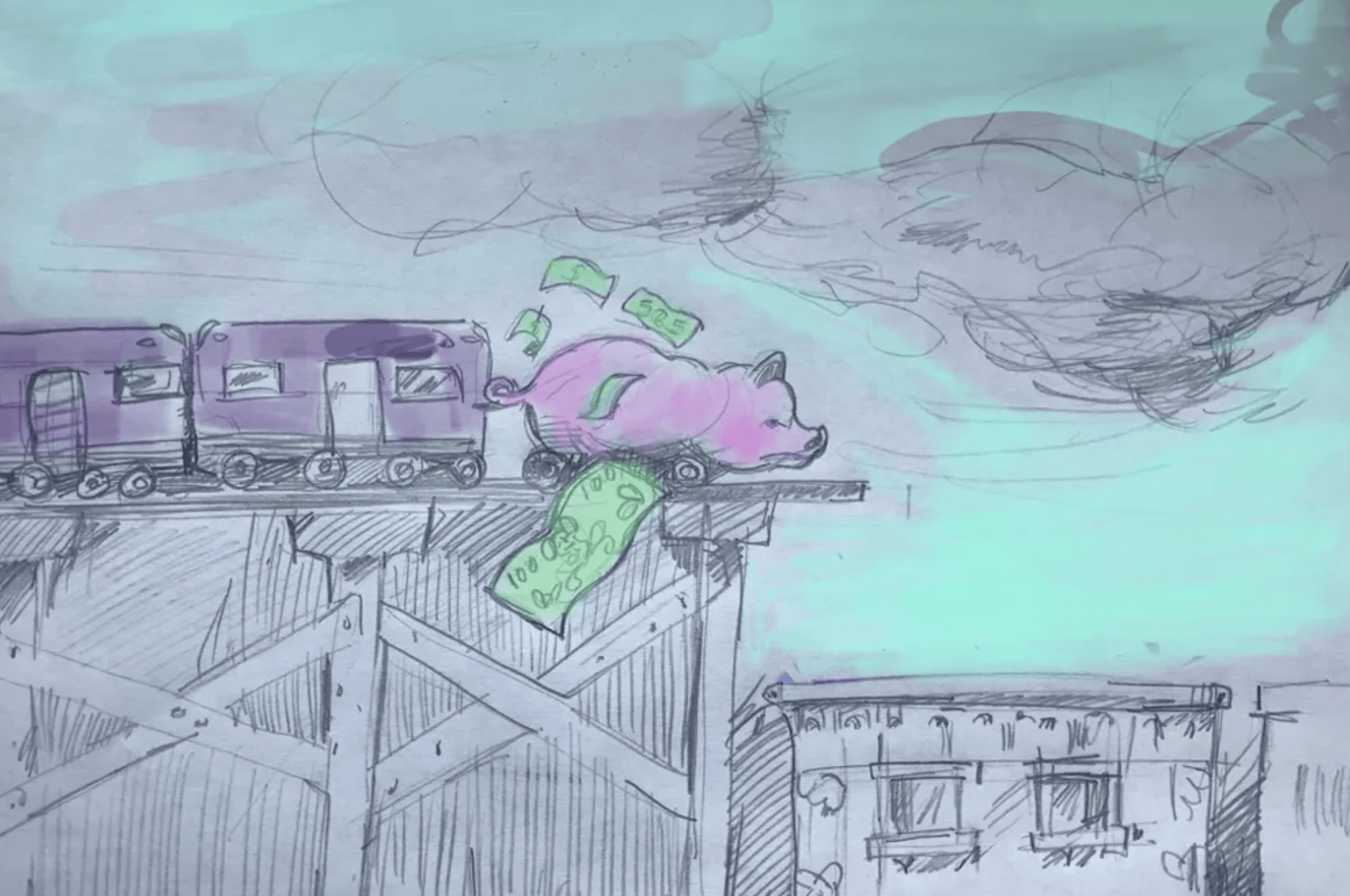
"Going off the rails on a crazy train."
- Ozzy Osbourne (R.I.P.)
There's an old saying that "half a loaf is better than none." That is, it's better to accept a portion of what you want, rather than insisting on the whole enchilada and getting nothing as a result. (Sorry, mixed metaphor, but you get the idea.)
As such, would it make sense for transit-friendly Springfield lawmakers to focus on passing a bill that raises the $771 million needed to prevent Chicago area public transportation from tumbling over the fiscal cliff next year? And is it irresponsible for these legislators to push hard for twice that, $1.5 billion, so that we can modernize and upgrade our public transportation network?
It's possible this "all-or-nothing" approach could result in no transit funding/reform legislation passing the full General Assembly at all. That's what happened at the end of the Illinois General Assembly's spring legislative session on May 31. If a bill doesn't go to Governor JB Pritzker's desk by the end of the summer, it's likely there will be 40 percent service cuts and some 3,000 layoffs, which would be catastrophic for our region and state.
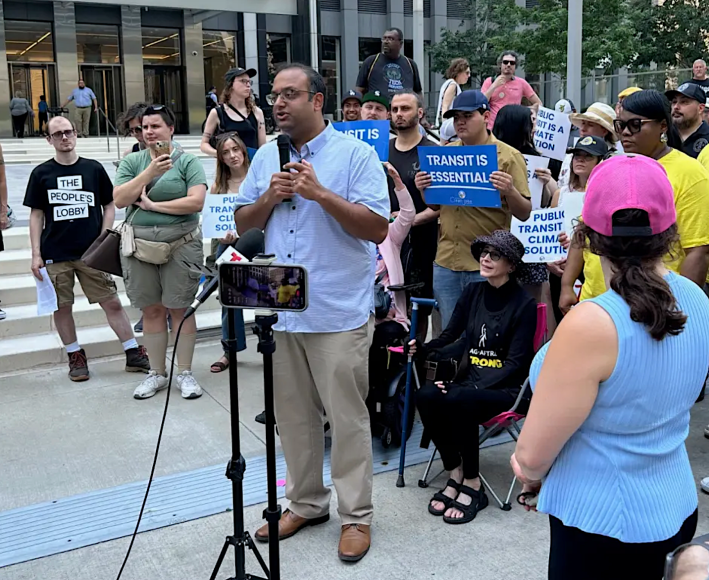
So is this "$1.5 billion or bust!" strategy reckless? State Sen. Ram Villivalam, who's leading the charge on the issue in Springfield says no. Instead, he argues it would be irresponsible *not* to demand more funding than what's needed to preserve the status quo. In our conversation today, he argued it's crucial for us to make Chicago-area transit more reliable, efficient, and equitable, and provided an update on efforts to pass the bill.
This interview has been edited for clarity and brevity.
John Greenfield: Congratulations on passing [House Bill 3438] in the State Senate on May 31. Unfortunately, the bill did not get passed by the House. How did you feel when that happened?
Sen. Ram Villivalam: Obviously this has been a three year process, going back
to the [Chicago Metropolitan Agency for Planning "Plan of Action for Regional Transit"] report and the legislation that was introduced in the eight committee hearings in the Senate, with over 35 hours of testimony and over a dozen meetings with the Governor's Office, the House Clean Jobs Coalition and the [Labor Alliance for Public Transportation] as well.
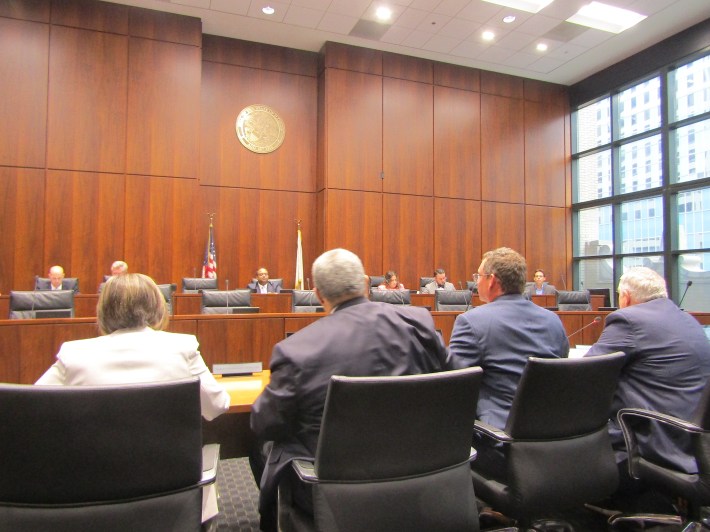
And so I think those negotiations, those committee hearings, the piece of legislation, the CMAP report, they really represent what reforms are in the legislation that we have, and a lot of the funding concepts came from those meetings and reports as well. Long story short, I think that we put our product forward in the Senate, and we believe there's wide consensus on the reforms.
And in terms of the funding, it was our plan for $1.5 billion in funding for the entire state public transit systems. And so we're looking forward to having the conversation with the House and Governor's Office. If they have a better plan, we're all ears. If there's no other plan, we'd like to see our legislation move forward.
JG: Okay, clearly, we're in a crisis situation. I mean, you've seen what's gone on with Philadelphia. Recently, SEPTA announced that they're going to be cutting service 45 percent and raising fares 20 percent due to a lack of state funding. Chicagoland's Regional Transportation Authority has said that if we can't fill this $771 million budget gap, we're going to have to do something similar in Chicago, with somewhere around 40 percent cuts and 3000 layoffs. Obviously, that would be horrible.
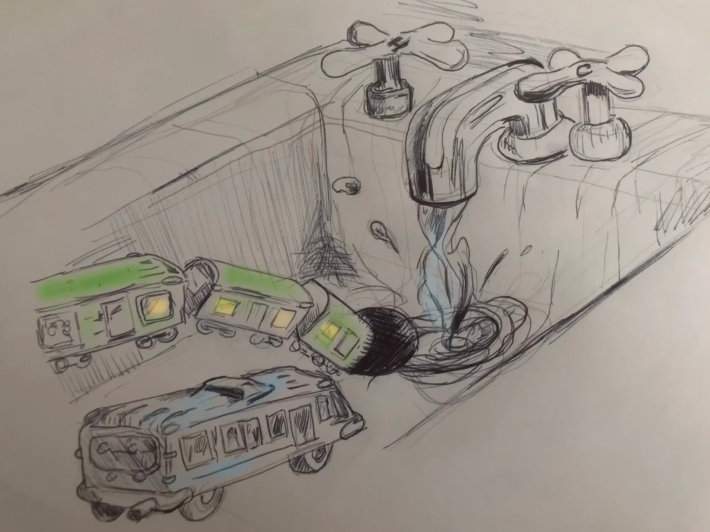
Will lack of funding for Chicagoland public transportation cause a “transit death spiral,” with service cuts sending ridership and revenue down the drain? Or will the Illinois Legislature step up to plug the budget gap? Illustration: Jonathan Roth
Now, you folks are trying to raise $1.5 billion a year to improve transit, rather than just filling in that $771 million budget gap next year. So my question for you is, what would you say to people who would say that, while it would be great to improve the system, we're at risk of going Philadelphia-style and losing the status quo. It would be horrible if we lost that much service.
Would it be safer to just compromise with the people who are opposed to the bill and have more conservative revenue sources, just raise that $771 million, instead of trying to raise twice that much with $1.5 billion? What would be your response to someone saying, "Senator, this is brinkmanship. You're risking everything." What would your response be?
SRV: First I would say that the agencies have indicated that supplying $771 million gets us the service that we have today. I can look at information from our residents to tell you that they are not satisfied with the service that we have today. That's number one. And as part of that, we currently have a system where 95 out of the top 100 longest commutes stem from Black and Latino communities, which obviously makes it harder for them to get to their job, their school, their doctor. So we already have a system that is not meeting the needs of all of our residents today, even though for every dollar that goes into the system, $13 goes out to our local economy.
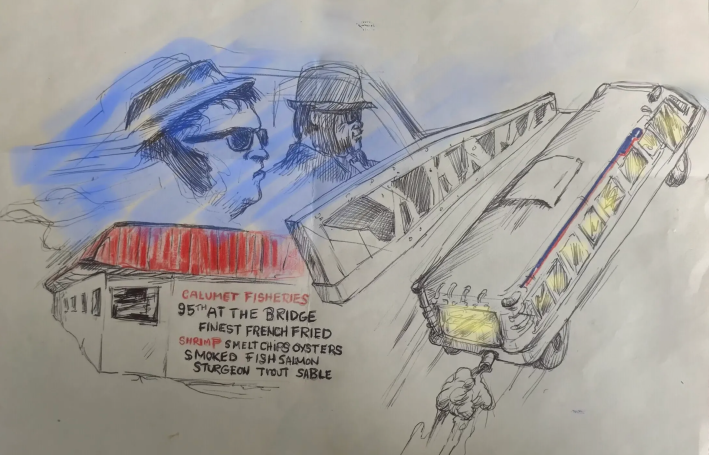
Number two, I would tell you that we want to invest in a system for several decades. We do not want to be back here next year, year after year after that, or even in five years, revisiting the challenges of funding a world-class system that's safe, that's reliable, accessible, and integrated.
And so we need to acknowledge that travel patterns have changed. We used to used to be a system that really focused on downtown to the suburbs and back. Now we're looking at a system where neighborhood-to-neighborhood transit, suburb-to-suburb transit, is what more and more residents are looking for. And in order for all of that to become a reality, it's going to take the transformational investment, as suggested by CMAP and both coalitions, $1.5 billion.
And by the way, John, no one has objected to the reforms officially, right?

Do you appreciate Streetsblog Chicago's reporting and advocacy on local sustainable transportation issues? If you haven't already, please consider making a tax-deductible donation here to help us continue publishing in 2026. Thanks!
JG: Well, [25 suburban mayors and village presidents, who call themselves Suburban Mayors Coalition for Fair Transit] put out a letter protesting the proposed development policies in the bill. For example, they're against creating a new suburban real estate transfer tax to fund transit. [The city of Chicago already has one.]
SRV: I have yet to see someone else put a $1.5 billion transformational investment plan forward. So when folks are opposed to parts of the funding plan, I simply ask them, what's your $1.5 billion plan that has 30 votes in the Senate and 50 in the House, that the governor would sign?
The bill was negotiated with the House, the Governor's Office, the jobs coalition, the Labor Alliance for Public Transportation. [The real estate policies are] part of the reforms, because [they streamline] development. And so, I reached out to [Hanover Park Village President Rodney Craig, one of the letter signees]. I'm happy to have conversations with them. But my for my response to him was, what's your plan to fund transit?
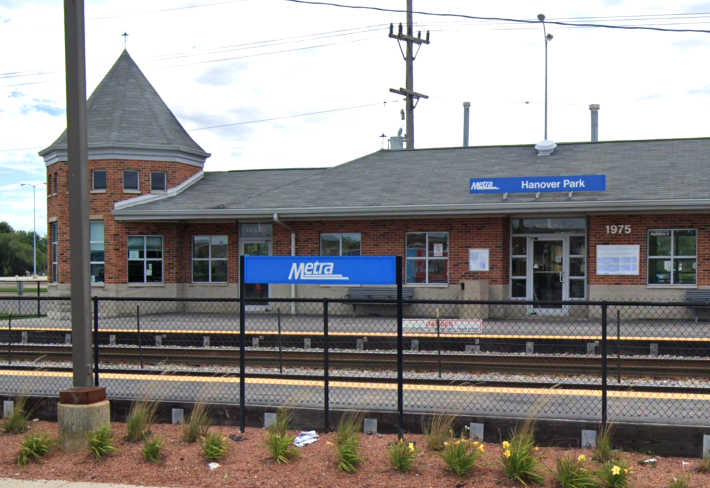
JG: If you asked them how they would come up with $1.5 billion, here's the response you might get from many suburban many suburban and downstate mayors and legislators, especially the ones that don't have CTA, Metra, or Pace access. "Why should we pay a real estate transfer tax, or a 50-cent toll surcharge, or a $1.50 delivery fee? This is mostly a Chicago problem."
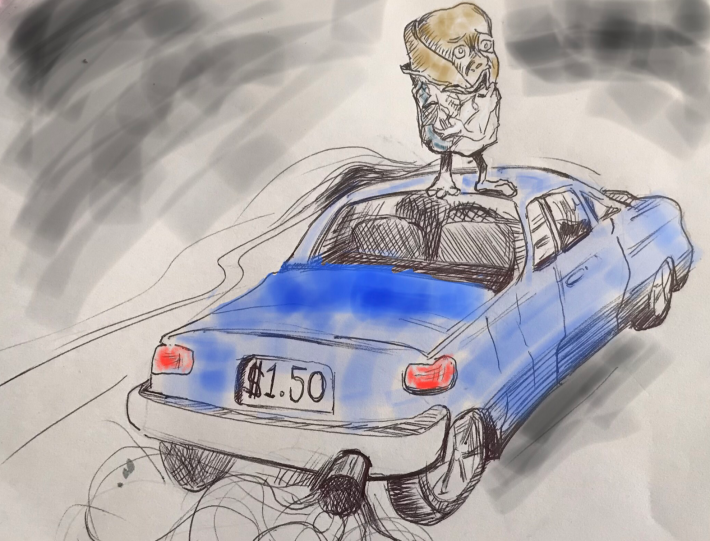
SRV: That could not be more false. First and foremost, we worked with the 54 downstate transit agencies, and their initial request was $80 million as part of this package. Through understanding their needs, we have allocated over $200 million for downstate transit as part of this $1.5 billion package.
This is a historic level of investment that will meet the day-to-day needs of downstate transit, while also looking to meet the capital needs that have been identified to provide connectivity from the Quad Cities to Chicago, from Peoria to Chicago, From Rockford to Chicago. And so anyone that states that this is not serving down not serving Downstate Illinois, and this is a Chicago issue, is lying.
JG: You know, one obvious argument one can make is that Chicagoland is the economic engine of Illinois. We produce a huge percentage of the GDP. So if Chicagoland's transit and economy fails, that's really going to hurt Downstate as well.
SRV: I would add to what I said earlier, that 30 percent of Pace riders transfer to CTA. There's there's more than 100 connections from Metra to CTA. The reality is, those are our four agencies, and 21 different appointing authorities to 47 different [transit board] appointments. And the connectivity needs to be 100 times better. We are all still connected through these agencies, and it will have a serious impact on the suburban residents coming from McHenry County if the fiscal cliff take places. And so this notion that this is just a Chicago challenge is a blatant mischaracterization.
JG: Okay. So things are getting real. We've really got to get this thing passed this summer right. If we wait until the fall veto session, the agencies may be forced to permanently make cuts, and it's going to be really hard to come back from 40 percent service cuts. They would have to fire lots of workers, and then if we ever have more money to run transit again, it will difficult to rehire them. So it's really important that we do this. Are you confident that a summer session is definitely going to happen? What's going on beyond the scenes – is it going to happen during the State Fair?

SRV: I've said this previously, that's above my pay grade. Obviously, that's a decision by the governor and the Senate President [Don Harmon] and the House Speaker [Emanuel "Chris" Welch]. I would just say the Senate stands ready to discuss other plans to achieve a transformational investment of $1.5 billion, and you know, in short of that, we'd like to see our legislation passed and be sent to the governor.
JG: All right. Well, I know all the transit workers and riders and advocates are rooting for you, hoping that you can get this figured out. So Godspeed!
SRV: Thank you, John.

Do you appreciate Streetsblog Chicago's reporting and advocacy on local sustainable transportation issues? If you haven't already, please consider making a tax-deductible donation here to help us continue publishing in 2026. Thanks!
